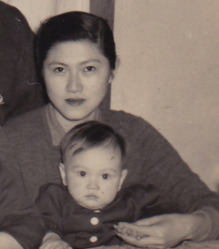Gratitude
Kansha: The Japanese Art of Gratitude
Reflecting on what we have received from our mother is the first step.
Posted May 10, 2021 Reviewed by Hara Estroff Marano
Key points
- We simply would not be here if not for our mothers.
- Accepting that our mothers were imperfect is the origin of gratitude.
- Remembering how we have caused hardship is the seed of forgiveness.

“Did you call your mother today?” Yesterday was Mother’s Day and I was feeling like spreading the joy of the wonder of having a mother. The guy in the coffee shop looked at me as if he were talking to a naïve child and said sharply, “My mother and I don’t talk.” That shut me up good. But I have never forgotten that exchange.
My mother has been good to me and this is a special day to honor that human being. But not everyone has a mother they want to remember, even, or especially on Mother’s Day. Some mothers have been unable to provide what their child needs. The child may spend much of their life feeling the loss of the relationship of what others regard as a cherished bond.
There is a native Japanese therapy called Naikan. The first step is to reflect on what you have received from your mother. This can prove to be a difficult task for some people. They struggle with thinking of anything that they have received from their mother. They may be stuck in remembering only the disappointments, hurts, or traumas.
The next two questions can help people to put the relationship in its complexity. “What have I given to my mother?” “What troubles have I caused my mother?” Though we may not want to deal with these questions, some people see that there are ways in which they hurt their mother or might give more to them.
In the end, the most amazing revelation may be that no matter what has happened since then, the mere gift of life is reason enough to feel gratitude to one’s biological mother. If for no other reason, we are grateful that they bore us and birthed us, and we received our life from them. We simply, but profoundly, would not be here if not for them, and that may be enough to remember on Mother’s Day.
References
S. Murphy-Shigematsu, From Mindfulness to Heartfulness: Transforming Self and Society with Compassion


